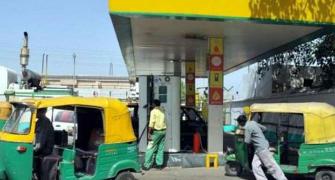India faces a new energy crisis - unavailability of gas in the international market - that could worsen power supplies and impact a wide range of industries.
Indian companies have been importing liquefied natural gas because domestic demand exceeds supply. A third of these imports are secured in the spot market and the balance through multi-year term contracts.
This sourcing pattern is a problem because, as Prosad Dasgupta, managing director of Petronet LNG, India's largest importer of LNG, explained, "There is a huge shortage of spot LNG cargoes in the world market."
This is because most of the cargoes have been bought by Japan, which is using gas to fire its power plants after its Kashiwazaki nuclear power plant closed last year.
Japan has imported close to 9 million tonnes per annum of spot LNG over the last year - more than India's LNG re-gassification capacity of 7.5 mtpa owned by Petronet LNG and Shell Hazira.
Spot LNG prices have increased - they mimic oil prices - but the supply constraint is a first. Prices at the New York Merchantile Exchange have more than doubled to 13.50 per mBtu (million British thermal unit) from $5.89 per mBtu in August 2007.
Users of spot LNG include NTPC - the country's largest power generator. "Spot LNG purchases are becoming a problem. When they are available we are paying $22-25 per mBtu. Our plants are also facing a shortage of gas," said an NTPC spokesperson.
"Shortage of spot LNG also affects smaller industries such as tile- and glass-makers and small power plants," said a Delhi-based analyst. "The larger players tend to have term contracts," he added.
Gas producing countries liquefy gas and transport it in cryogenic ships to consuming countries that are not connected by pipelines. The liquefied gas is easier to transport but is more expensive since the buyer has to pay liquefaction and regassification costs.
Most industries in Gujarat, where India's LNG regassification terminals are located, are worried.
"We may have to increase retail prices of gas in Gujarat," said an official in Gujarat State Petroleum Corporation, which sells gas to households and vehicles.
Industries across the country are waiting for Reliance Industries to start producing gas from the Krishna-Godavari basin off the Andhra Pradesh coast. At peak production, gas from this field is expected to double availability in India.







